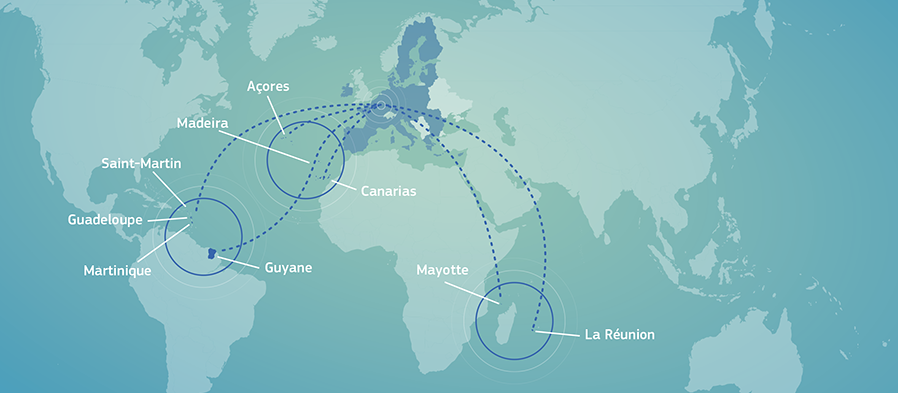The EU and its outermost regions
The European Union (EU) counts nine outermost regions, which are geographically very distant from the European continent.
- French Guiana, Guadeloupe, Martinique, Mayotte, Reunion Island and Saint-Martin (France)
- Azores, Madeira (Portugal)
- The Canary Islands (Spain)

The outermost regions are islands, archipelagos and one land territory (French Guiana). They are located in the Atlantic Ocean, the Caribbean Sea, South America and the Indian Ocean, and are home to close to 5 million EU citizens.
Despite the thousands of kilometres separating them from the European continent, these regions are an integral part of the EU. Therefore, EU law and all the rights and duties associated with EU membership apply to the outermost regions. In accordance with Article 349 of the Treaty of the Functioning of the European Union (TFEU), specific measures and provisions in EU legislation help these regions address the major challenges they face due to their remoteness, insularity, small size, difficult topography and climate, as well as economic dependence on a reduced number of products.
The outermost regions have unique potential and distinctive assets that can benefit the EU as a whole. They provide a European presence in strategic areas of the world and have exceptional characteristics that make them excellent laboratories for research and innovation for example in biodiversity and renewable energies.
The specific status granted to the outermost regions under Article 349 TFEU has led, since 2004, to European strategies that seek to address the challenges these regions face and to help explore their assets. The implementation of these strategies is based on a strong partnership between the European Commission, the outermost regions, and their Member States (France, Portugal and Spain).
In May 2022, the European Commission adopted a broad strategy for the outermost regions aimed at reflecting these regions specificities across all policies, with a focus on “putting people first” by supporting living conditions.
